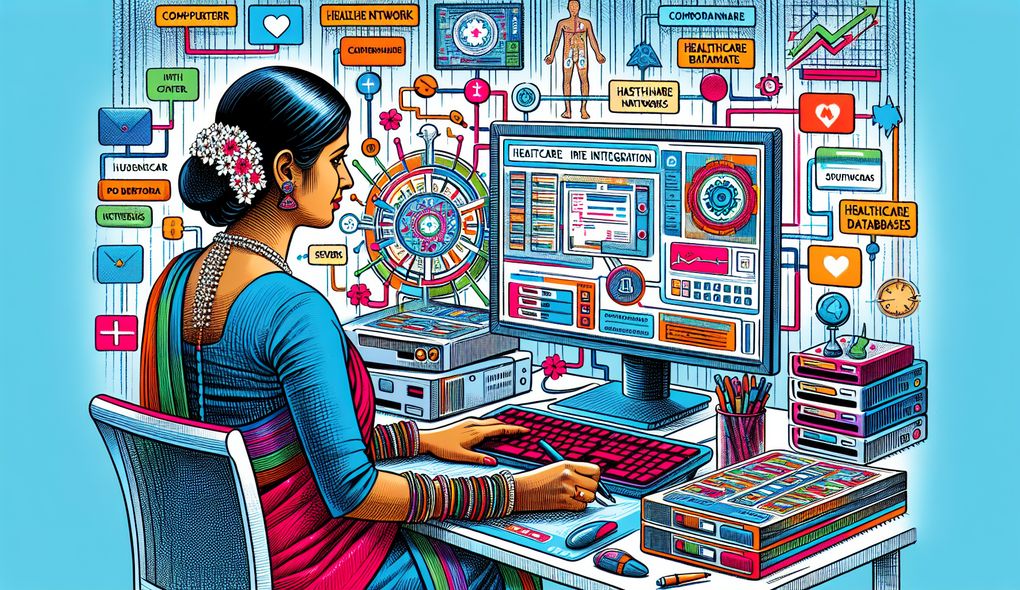Can you explain the functionalities of EHR/EMR systems?
JUNIOR LEVEL

Sample answer to the question:
EHR/EMR systems are electronic health records and electronic medical records systems that store and manage patient health information. These systems have a variety of functionalities, including capturing and storing patient demographic information, medical history, medications, allergies, test results, and treatment plans. They also facilitate the sharing of patient information among healthcare providers, improve communication and collaboration, and enable healthcare organizations to track and manage patient care. Additionally, EHR/EMR systems often come with modules for appointment scheduling, billing, and reporting.
Here is a more solid answer:
EHR/EMR systems are crucial tools in healthcare that streamline the management of patient health information. These systems allow healthcare providers to capture, store, and access patient data in a digital format, replacing traditional paper records. The functionalities of EHR/EMR systems include: 1) Patient Demographics: EHR/EMR systems store information such as name, age, contact details, and insurance information. 2) Medical History: These systems maintain a comprehensive record of past diagnoses, procedures, treatments, and allergies. 3) Medications: EHR/EMR systems track prescribed medications, dosages, and frequencies, helping healthcare providers avoid medication errors. 4) Test Results: Patient lab results, imaging reports, and other diagnostic tests can be stored and reviewed within the system. 5) Treatment Plans: EHR/EMR systems support the creation and documentation of treatment plans, including referrals and follow-up appointments. 6) Interoperability: These systems enable the exchange of patient information across different healthcare providers, ensuring continuity of care. To illustrate these functionalities, consider the example of a patient visiting a primary care physician for a check-up. The physician uses the EHR/EMR system to access the patient's medical history, review previous test results, prescribe medications, and document the visit. The system also automatically sends an electronic summary to the patient's specialist for further coordination of care.
Why is this a more solid answer?
The solid answer provides a more comprehensive explanation of the functionalities of EHR/EMR systems. It includes specific examples and demonstrates a deeper understanding of how these systems are used in healthcare. However, it could still benefit from further elaboration on the integration aspects of EHR/EMR systems, which is relevant to the job description.
An example of a exceptional answer:
EHR/EMR systems play a vital role in modern healthcare by digitizing and centralizing patient health information. The functionalities of these systems encompass various aspects of patient care, including: 1) Data Capture: EHR/EMR systems enable the collection of structured and unstructured data, such as clinical notes and images, supporting comprehensive and accurate patient records. 2) Decision Support: These systems integrate clinical guidelines and best practices, providing healthcare professionals with alerts, reminders, and evidence-based recommendations for improved patient care. 3) Workflow Management: EHR/EMR systems streamline administrative processes like appointment scheduling, billing, and insurance claims, reducing paperwork and improving efficiency. 4) Interoperability and Integration: EHR/EMR systems facilitate the exchange of patient information across different healthcare settings, ensuring seamless care coordination and continuity. They integrate with other systems, such as laboratory information systems and medical imaging systems, to enable the sharing of test results and images. 5) Analytics and Population Health: EHR/EMR systems offer robust reporting and data analysis capabilities, enabling healthcare organizations to track outcomes, identify trends, and improve population health management. To provide a concrete example, imagine a patient with diabetes receiving care from a multidisciplinary team. The EHR/EMR system allows the endocrinologist to review the patient's glucose levels, insulin regimen, and self-reported symptoms. The primary care physician can access the same information, monitor medication adherence, and coordinate care with the endocrinologist. Overall, EHR/EMR systems enhance patient safety, improve healthcare quality, and optimize clinical workflows.
Why is this an exceptional answer?
The exceptional answer goes into greater depth and provides a comprehensive understanding of the functionalities of EHR/EMR systems. It not only covers the basic functionalities but also includes advanced capabilities such as decision support, workflow management, and data analytics. It demonstrates a thoughtful and expert-level understanding of how these systems impact patient care and healthcare operations. The answer aligns well with the job description's emphasis on technical support, healthcare IT systems, and integration methodologies. However, it could be further improved by mentioning specific integration protocols and standards such as HL7 and FHIR, which are required qualifications for the position.
How to prepare for this question:
- Familiarize yourself with the basic functionalities of EHR/EMR systems, including patient demographics, medical history, medications, test results, treatment plans, and interoperability.
- Research integration methodologies and standards used in healthcare IT, such as HL7 and FHIR, to understand how different systems communicate and exchange data.
- Review case studies or real-life examples of EHR/EMR implementation to gain insights into the practical use and benefits of these systems in healthcare organizations.
- Reflect on your own experiences with EHR/EMR systems, if any, and prepare specific examples that highlight your understanding of their functionalities and impact on patient care.
- Consider the integration aspects of EHR/EMR systems and how they align with the responsibilities of a Healthcare IT Integration Specialist. Familiarize yourself with common challenges and best practices in integrating healthcare IT systems.
- Practice articulating your response to this question using clear and concise language, emphasizing the importance of EHR/EMR systems in improving communication, data exchange, and operational efficiencies within medical facilities.
What are interviewers evaluating with this question?
- Technical support
- Healthcare IT systems
- Documentation

